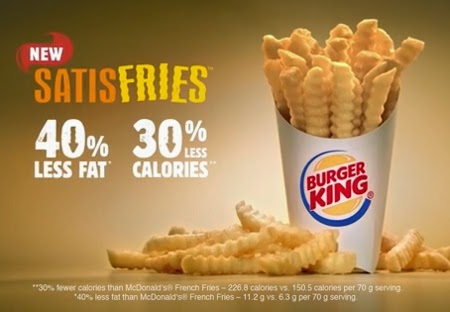Burger King Melts Calories: Nutritional Insights & Facts
Burger King Melts have become a sought-after item for burger lovers seeking that cheese-filled, savory delight. But what about those counting calories? Good news – you can still enjoy these rich flavors without going overboard. With balanced consumption, these melts fit into an overall healthy diet. Each melt offers a flavorful combination of meat, cheese,…
Burger King Melts have become a sought-after item for burger lovers seeking that cheese-filled, savory delight. But what about those counting calories? Good news – you can still enjoy these rich flavors without going overboard. With balanced consumption, these melts fit into an overall healthy diet.
Each melt offers a flavorful combination of meat, cheese, and sauce, sandwiched between perfectly toasted bread. Keep reading to find out more about the nutritional breakdown, serving size, and the amount of energy it takes to work off these tasty treats.
Burger King Melts Nutrition Facts
| Nutrient | Amount | % Daily Value |
|---|---|---|
| Calories | 560 | – |
| Total Fat | 28.00 g | 43% |
| Saturated Fat | 12.00 g | 60% |
| Trans Fat | 0.5 g | – |
| Cholesterol | 75 mg | 25% |
| Sodium | 1280 mg | 53% |
| Total Carbohydrate | 44 g | 15% |
| Dietary Fiber | 3 g | 12% |
| Total Sugars | 5 g | – |
| Protein | 27 g | 54% |
| Vitamin D | 1 mcg | 6% |
| Calcium | 350 mg | 35% |
| Iron | 4 mg | 22% |
| Potassium | 400 mg | 8% |
The % Daily Value (DV) tells you how much a nutrient in a serving of food contributes to a daily diet. 2,000 calories a day is used for general nutrition advice.
Nutrient Distribution
Nutrient Distribution
Carbohydrate 44%
Protein 27%
Fat 29%

Calorie Burn Time
How long would it take to burn off total calories from 100g of Burger King Melts?
Walking 60 minutes
Jogging 40 minutes
Biking 30 minutes
Swimming 50 minutes
FAQs
Are Burger King Melts healthy?
While tasty and satisfying, they should be consumed in moderation due to high calories and saturated fats.
Do Burger King Melts contain trans fat?
Yes, they contain 0.5g of trans fat per serving.
Are Burger King Melts high in sodium?
Yes, one melt contains 1280mg of sodium, which is 53% of the daily recommended intake.
How much protein do Burger King Melts have?
Each melt contains 27g of protein, which is 54% of the daily value.
Are there any vitamins in Burger King Melts?
Yes, they provide a moderate amount of Vitamin D and Calcium.
Can people with cholesterol concerns eat Burger King Melts?
It’s advisable for individuals with cholesterol issues to limit their intake, as it contains 75mg of cholesterol.
Is the fiber content in Burger King Melts adequate?
The fiber content is modest, providing 3g per melt.
How do Burger King Melts fit in a balanced diet?
They can be part of a balanced diet when consumed in moderation, alongside plenty of fruits and vegetables.
Conclusion
Burger King Melts are a delightful indulgence, offering high protein and moderate vitamin content. While they provide specific nutritional benefits, it’s essential to consume them mindfully within a balanced diet. Enjoying them occasionally, while maintaining a healthy lifestyle, allows you to savor the flavors without compromising on health.




